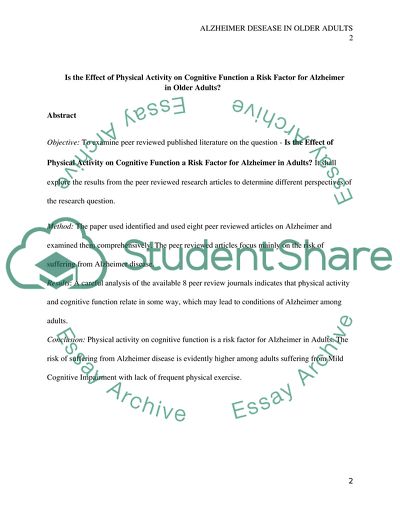Cite this document
(“Systematic Review on Is the Effect of Physical Activity on Cognitive Research Paper”, n.d.)
Systematic Review on Is the Effect of Physical Activity on Cognitive Research Paper. Retrieved from https://studentshare.org/health-sciences-medicine/1630637-systematic-review-on-is-the-effect-of-physical-activity-on-cognitive-function-a-risk-factor-for-alzheimers-in-older-adults
Systematic Review on Is the Effect of Physical Activity on Cognitive Research Paper. Retrieved from https://studentshare.org/health-sciences-medicine/1630637-systematic-review-on-is-the-effect-of-physical-activity-on-cognitive-function-a-risk-factor-for-alzheimers-in-older-adults
(Systematic Review on Is the Effect of Physical Activity on Cognitive Research Paper)
Systematic Review on Is the Effect of Physical Activity on Cognitive Research Paper. https://studentshare.org/health-sciences-medicine/1630637-systematic-review-on-is-the-effect-of-physical-activity-on-cognitive-function-a-risk-factor-for-alzheimers-in-older-adults.
Systematic Review on Is the Effect of Physical Activity on Cognitive Research Paper. https://studentshare.org/health-sciences-medicine/1630637-systematic-review-on-is-the-effect-of-physical-activity-on-cognitive-function-a-risk-factor-for-alzheimers-in-older-adults.
“Systematic Review on Is the Effect of Physical Activity on Cognitive Research Paper”, n.d. https://studentshare.org/health-sciences-medicine/1630637-systematic-review-on-is-the-effect-of-physical-activity-on-cognitive-function-a-risk-factor-for-alzheimers-in-older-adults.


